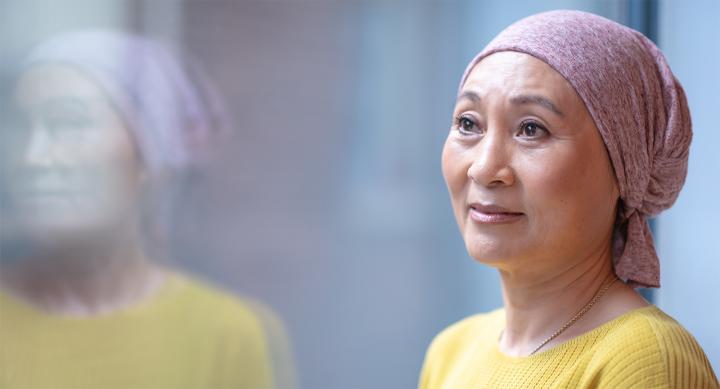
In the realm of cancer care, addressing the physical and emotional challenges faced by patients is vital. Dean Eun-Ok Im, PhD, MPH, RN, CNS, FAAN, a prominent researcher in the field, has embarked on a study to revolutionize cancer pain management, particularly among Asian American breast cancer survivors with depressive symptoms.
Im’s research stems from an understanding of the unique cultural dynamics in Asian American communities. Despite advancements in pain management strategies, Im says many Asian American patients exhibit a stoic reluctance to address their pain, often due to their cultural beliefs surrounding endurance and emotional expression.

According to Im, Asian American breast cancer survivors with depressive symptoms are more likely to have insufficient pain management due to their depression, which could lead to worsening depression and pain.
She also mentioned that the recent opioid crisis has exacerbated the fear of opioid addiction for many Asian American breast cancer patients, leading to a reluctance to seek help or take medication for pain management.
Her research project titled “Cancer Pain Management: A Technology-Based Intervention for Asian American Breast Cancer Survivors” is funded by a National Cancer Institute grant through the National Institutes of Health totaling over $5 million. This study is a collaborative effort with Wonshik Chee, PhD, professor at UT Austin College of Education, and Hyekyun Rhee, PhD, RN, FAAN, School of Nursing Professor and La Quinta Motor Inns, Inc. Centennial Professor.
Based on preliminary studies, Im’s research team developed and pilot-tested an evidence-based web app-based information and coaching/support program for cancer pain management that was culturally tailored to Asian American breast cancer survivors using multiple unique features.
However, Im said cancer pain management rarely considers depressive symptoms accompanying pain, and preliminary studies showed the need for further individualization of the intervention components of cancer pain management due to the variety of needs of Asian American breast cancer survivors with depressive symptoms.
The technology-based cancer pain management program for Asian American breast cancer survivors with additional components and individual optimization—known as CAI for short—targets Chinese American, Korean American and Japanese American breast cancer survivors. The program, which is available in English, simplified Mandarin, traditional Mandarin, Korean and Japanese, uses a multifaceted approach to address both pain management and depressive symptoms.
This study will accelerate the translation of technology-based programs into health care and will be an important contribution to the pain management of cancer survivors with depressive symptoms. Ultimately, this study will contribute to reducing ethnic disparities in health/disease experience by providing directions for culturally competent health care services, specifically for adequate pain and symptom management of racial/ethnic minority cancer survivors.
“At the core of our program is the recognition that pain and depression are intricately linked,” Im said. “Our goal is not only to alleviate physical discomfort but also to provide holistic support for patients’ mental well-being.”

The development phase of CAI involved extensive modifications to existing survivorship programs, integrating tailored content specifically designed to address depressive symptoms. Utilizing machine learning algorithms, the program personalizes intervention components for participants.
CAI incorporates both individual and group components, leveraging online resources and social media platforms to foster community support and education.
“By providing a safe space for sharing experiences and accessing individualized coaching, participants are empowered to advocate for their own health and well-being,” Im added. “We aim to create a supportive community where patients feel understood, validated and empowered to seek help when needed.”
Im’s research represents hope for Asian American breast cancer survivors facing cultural barriers to care. Through randomized controlled trials and ongoing data collection, Im and her team aim to demonstrate the efficacy of CAI in improving patients’ quality of life.
Im hopes to expand the program to cover more Asian populations and eventually translate the findings into clinical practice, ensuring that cancer patients of all backgrounds receive the support and care they deserve.
Through collaboration with health care providers, policy makers and community organizations, Im envisions a health care landscape where cultural competence is seamlessly integrated into every aspect of cancer care.